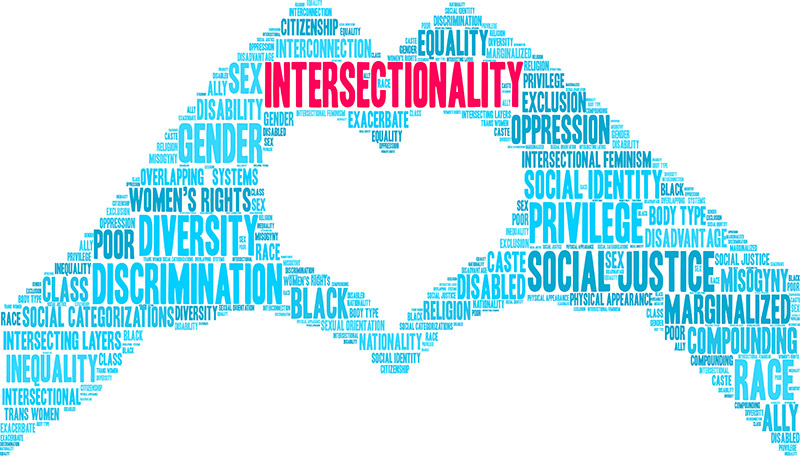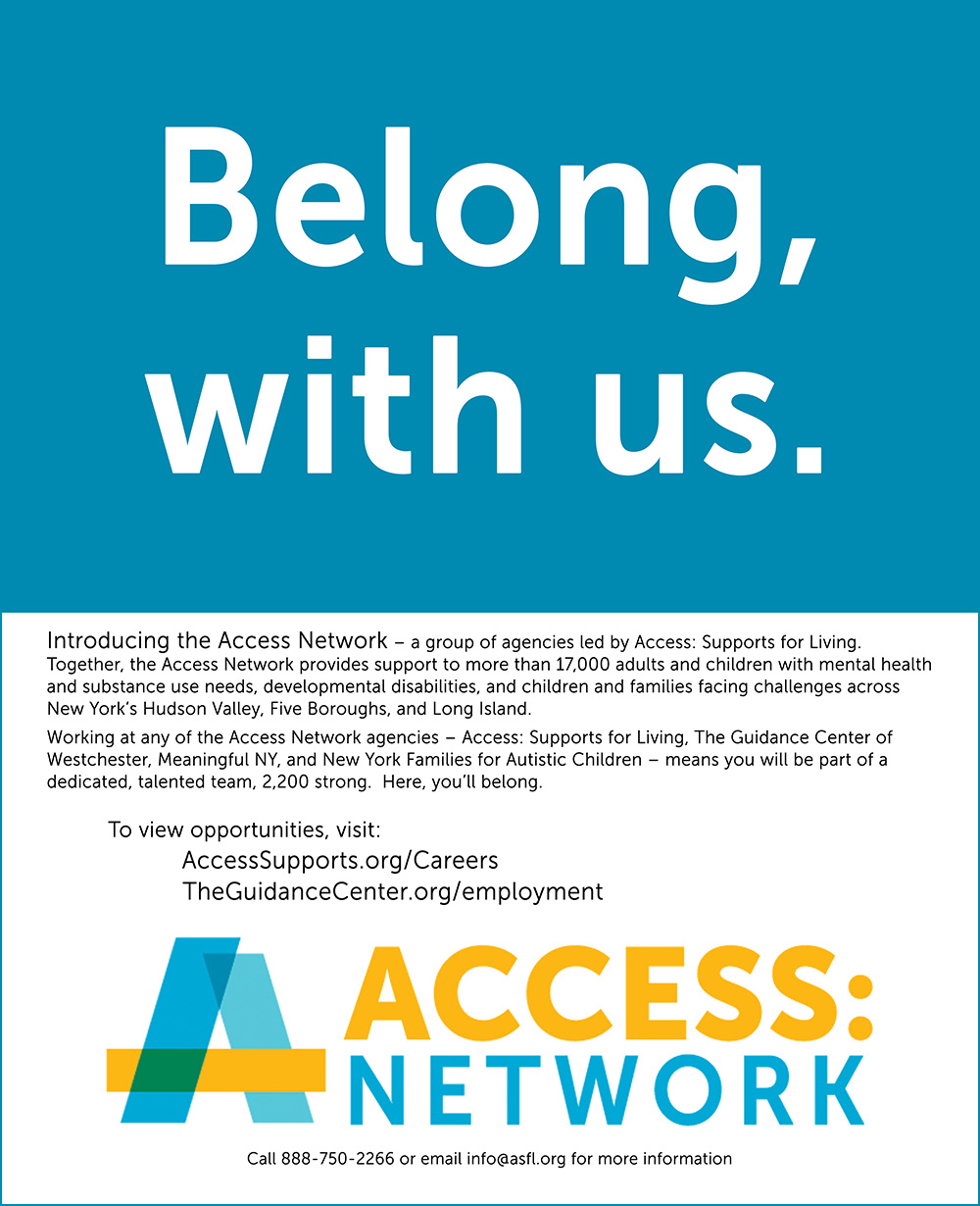What are your social identities? How do you identify and how does the world see you? “Intersectionality, a term coined by legal scholar Kimberlé Crenshaw, emphasizes the “multidimensionality” of oppressed people’s lived experiences and recognizes how various types of oppression frequently coexist and intensify one another (Karmakar, 2022).” As part of my many intersecting identities, I identify as a Black cisgender woman. My identities are not independent of each other and overlap with who I am and how I am seen in the world.

Social stigmas can have a negative connotation and/or lead to discrimination against an individual or group based upon their social locations such as race, gender, religion, co-occurring disorders, disability, sexuality, and other identities. When we consider what intersectionality means, it is complex and is interconnected to social justice issues including, but not limited to, power dynamics and systemic oppression inclusive of disparities of wealth, health, education, experiences in the legal system, employment/wages, and access to resources. These disparities have significant and long-lasting impact to marginalized groups who are stigmatized based upon their intersectional identities and social location.
There is no one size fits all when looking at engagement and behavioral health treatment approaches which can either support those we serve or harm an individual’s overall well-being. Culturally aware, sensitive, and appropriate responses and approaches should be thoughtful and intentional. Approaches and interventions for a person who identifies as a cisgender, bicultural, female, can look different from approaches for a person who identifies as Black, gender nonconforming and differently abled. As we are reflective and cognizant of intersecting identities in historical, social, cultural, and political contexts, and are inclusive of an intersectional framework when in dialogue with stigmatized groups, we gain better insight to the experiences of these populations through their narratives.
Behavioral health services are not wrapped in a box with a bow. We serve a diverse population of community members who each have unique and complex experiences and needs, inclusive of historically and presently stigmatized groups. The expectation to conform to society’s Western culture, values, and beliefs of what behavioral health approaches and interventions should look like are not in alignment with the experiences of stigmatized populations. The impact to this primarily Western-influenced homogenous approach is that we risk our efforts being out of alignment with the needs of stigmatized populations. Even further, we potentially leave a gap between the treatment needs and social justice problems that may be contributing factors to the individual and group issues within systems and structures that are broken and stigmatizing, leaving oppression and marginalization to continue to be perpetuated.
An intersectionality framework can have a meaningful impact and potentially better outcomes in behavioral health care. Through conversations with our clients and groups about how they experience the stigma of having intersecting identities, socio-politically and culturally, can provide validation, acknowledgement, inclusivity, and a deeper understanding of ways in which we can understand and support those individuals. Singh et al. (2020) suggests that intersectionality scholars inspire behavioral health providers to understand that using common theories can be harmful to clients with a dearth of awareness of cultural components around more influential and traditional theories.
The term epistemology is about how we know what we know. What are our ways of knowing? How do we know what the experiences of intersectionality are of stigmatized individuals and groups? We must be moved to think about systemic oppression, explore and be curious about the person and environment, recognize power imbalances, consider our own intersecting identities, consider our own power, privilege, and oppression that we hold and be culturally conscious. Hold courageous conversations inclusive of an individual’s intersecting identities and an awareness of any biases that may negatively impact those with whom we work. “It requires that social workers be vigilant, bold, and knowledgeable. It tells us that in order to serve for justice, one has to get to the heart of the matter” (Sulé, 2020). There is a narrative to be heard and explored. Accordingly, Collins (2019) states intersectionality is about interconnections, reciprocity of engagement, and rapport building.
Let us consider health disparities within our healthcare systems. Social determinants of health have a negative impact on marginalized and stigmatized groups. Almeida et al. (2019) suggests that use of an intersectional assessment to inform ways in which social determinants of health determine overall wellness and health by using a decolonizing process and approach. Assessment of financial or economic stability, healthcare access and quality, environmental factors, food insecurity, housing, unemployment, cultural and social stigma, support networks, education, and literacy to name just a few. There is a cycle and theme of these social determinants of health that are experienced at a high rate by marginalized and oppressed populations. We tend to focus more on what is considered deficits of an individual rather than how systems in which these populations are engaged with continuously oppress, stigmatize and even pathologize. Within our healthcare systems as a whole, we need to do better with deconstructing and eradicating the stigma of those with intersecting identities and the experiences of being marginalized, oppressed, dismissed, devalued and unheard.
There are many interventions we can implore. Training is a critical aspect of bringing awareness, knowledge, tools and resources about intersectionality and application of the framework. While many may have heard the term intersectionality, many may not fully understand how to apply the framework and how to have discussions about intersecting identities and the impact socially, politically, or culturally it has on stigmatized groups and social justice issues that inherently are attached. I say, get comfortable with being uncomfortable.
Inviting and holding conversations in a learning and teaching environment, inclusive but not limited to, supervision spaces, with our organizations leadership, speaking with community members, and with community partners about intersectionality, make it an inclusive conversation so that we can be thoughtful about decisions we make, policies we create, and utilizing practices that are supportive of stigmatized populations. If we are not talking about intersectionality, we are not addressing it. If we are not addressing it, marginalized groups will continue to experience of stigmatization. Hence, we become complicit in continuing to perpetuate stigmatizing oppressed and marginalized populations.
I will leave you with a quote from the late great inspiring Maya Angelou: “Do the best you can until you know better. Then when you know better, do better.”
The Guidance Center of Westchester is part of the Access Network – a group of agencies led by Access: Supports for Living. Together, the nearly 2,200 staff of the Access Network provide support to more than 17,000 adults and children with mental health and substance use needs, developmental disabilities, children, and families facing challenges, and those who need support with housing and employment across New York’s Hudson Valley, the five boroughs of New York City, and Long Island.
References
Collins, P.H. (2019). Intersectionality as Critical Social Theory. Durham: Duke University Press. https://muse.jhu.edu/book/69118
Karmakar, Goutam (2022). Feminism and Intersectionality: Black Feminist Studies and the Perspectives of Jennifer C. Nash. Journal of International Women’s Studies, 23(1), 388-395. https://vc.bridgew.edu/jiws/vol23/iss1/21
Rhea V. Almeida, Lisa Marie Werkmeister Rozas, Bronwyn Cross-Denny, Karen Kyeunghae Lee & Ann-Marie Yamada (2019) Coloniality and Intersectionality in Social Work Education and Practice, Journal of Progressive Human Services, 30:2, 148-164, DOI: 10.1080/10428232.2019.1574195
Singh, A.A., Appling, B. and Trepal, H. (2020), Using the Multicultural and Social Justice Counseling Competencies to Decolonize Counseling Practice: The Important Roles of Theory, Power, and Action. Journal of Counseling & Development, 98: 261-271. https://doi.org/10.1002/jcad.12321
Sulé, V. (2020) Critical Race Theory. Encyclopedia of Social Work. https://oxfordre.com/socialwork/view/10.1093/acrefore/9780199975839.001.0001/acrefore-9780199975839-e-1329.







